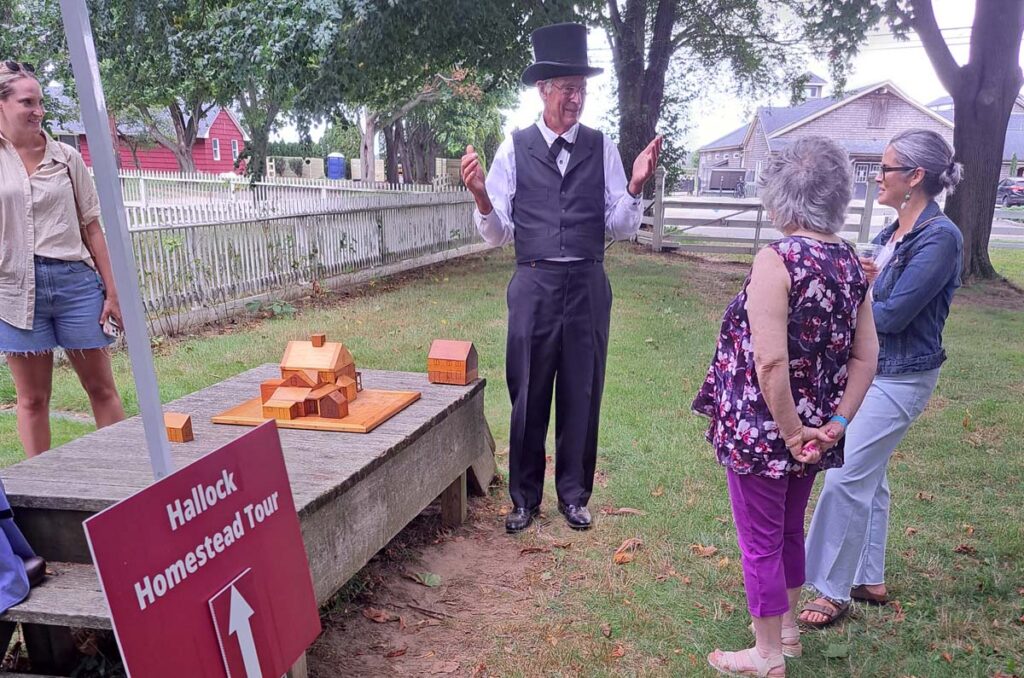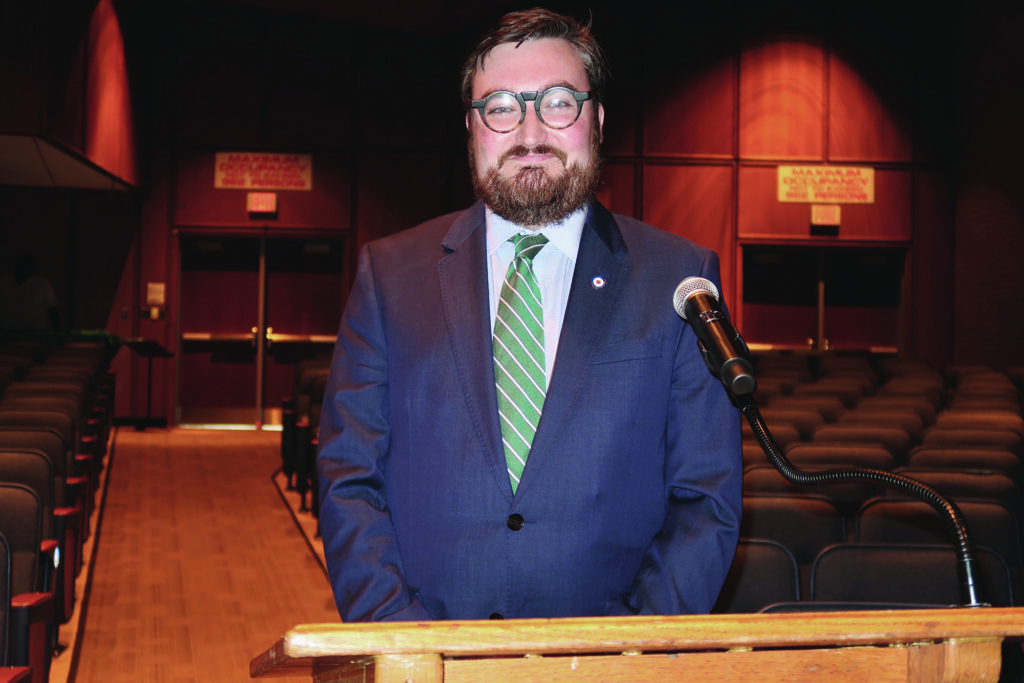Riverhead’s antidote to bias: film, facts and conversation

The first installment in what Riverhead Anti-Bias Task Force chair Mark McLaughlin calls “Black History on Screen” unfolded last Wednesday before a full house at The Suffolk with a panel discussion and a screening of the film “Just Mercy,” starring Jamie Foxx and Michael B. Jordan.
“That’s what Black history does,” Mr. McLaughlin said at the event. “That’s what Black excellence does: it brings people together. We share cultures. We learn about each other. We shake hands. We engage. It’s just a pleasure to see this happening.”
Based on the memoir ‘Just Mercy: A Story of Justice and Redemption,’ the film tells the story of a Black man named Walter McMillian who was wrongly convicted of the murder of a white teenager, and the Black attorney, Harvard Law graduate Bryan Stevenson, who got his client’s conviction overturned before Mr. McMillian’s eventual release from prison.
Riverhead Town Supervisor Tim Hubbard, who previously served for 32 years on the town’s police force, said Riverhead’s strength lies in its diversity.
“One reason our town is so special is because we can truly say we are one of the most culturally diverse communities on Long Island,” he said to a roar of applause. “ We have folks from all walks of life, which means we represent and give voices to all.
“One of my most important responsibilities is to ensure every single person feels safe, seen and heard,” Mr. Hubbard told the audience.
“Every voice must count, especially those that have historically gone unheard or been underrepresented. I want to find ways that diversity [can apply] across all town levels, and I’m making a promise right here right now to do just that,” he continued. “I promise to be an inclusive leader who governs with the promise that diversity is one of the crown jewels of Riverhead. It not only strengthens but also empowers our community, helping us to shine bright.”
The supervisor also gave credit to Mr. McLaughlin.
“Since Mark has taken over as chair of the Anti-Bias Task Force, there has been a palpable difference in the energy, direction and sense of purpose,” Mr. Hubbard said.
A panel discussion that preceded the movie screening focused on criminal justice reform and improving engagement with minority communities brought together Mr. Hubbard, Suffolk County Sheriff Errol Toulon Jr. and head of the Suffolk County District Attorney’s Office criminal division Megan O’Donnell. District Attorney Ray Tierney had been scheduled to appear but was unable to attend.
Ms. O’Donnell said collaboration within the court system is essential to fostering rehabilitation and support services for the recently-incarcerated.
“We, as prosecutors work closely with the courts, obviously, and … we’re lucky that the [Suffolk County] courts have a diverse range of treatment courts, such as drug court, they have a DWI treatment court, they have youth court,” she said. “So we work together with the courts and with the defense to make decisions about who deserves a second chance, or even a third chance. Who needs treatment, as opposed to who needs just straight incarceration. We take all of these decisions to heart and really take time in evaluating the appropriate person and the appropriate case for those types of courts.”
Sheriff Toulon talked about the “Sheriff’s Transition and Re-Entry Team,” or START.
“We start working with individuals the minute they’re incarcerated in our facility,” he said. “What services do they need? Where are they at in their life? When you have [an inmate] discharged, we’re able to get them two weeks of non-perishable food. We’re able to give them personal hygiene items. We will give them transportation so they’re not coming into the Riverhead community or the Yaphank community,” he said, referring to two county jail locations. “We will drop them off where there is a loved one or family member that can bring them into a safe place. We work with them to put job placement, for housing, mental health issues, substance abuse issues.”
Ms. O’Donnell said that the Suffolk County District Attorney’s office offers internships for high school kids and “externships” for college students, who earn college credit for their work at the office.
“Many of the young students that come to our office actually want to go into defense work and defend defendants in the in the criminal justice system,” Ms. O’Donnell said, “which is really the best type of attorney that you could possibly be. You’re not biased. You’re not for one side or the other. But you’re really just for justice.”
Mr. Hubbard highlighted Riverhead’s Youth Court, which he said is made up of students from Riverhead and Shoreham-Wading River high schoolsm “and I believe from the charter school.
“We try to lessen the load going into family court and take some of these kids instead of putting them through the regular process, and let them go before a jury of their peers. So they will go before students that they may be going to school with, friends, it could be acquaintances, and they go before they appear and the peers dole out their sentences after they go to a trial. And it’s really a great program because it gives young kids the opportunity — who maybe want to go into law enforcement or maybe want to be an attorney when they grow up — a chance to see how it really works.”
Mr. Hubbard described “the feeling that you get when you can offer a sentence to somebody and hope that you can help them out and stop them from recreating a crime in the future.” He also noted that the recidivism rate in Youth Court is, “extremely low, which is good to see … I was so impressed by it. I love the program, and I think it does a great job.”
Ms. O’Donnell concurred, saying that as a young prosecutor in the East End bureau of the D.A.’s office, she volunteered in a youth court, which she called a valuable experience for any young prosecutor because it encourages them to tailor their approach to a prosecution based on the needs of the case.
“It’s looking at each case and really trying to make a determination about where that case should go,” Ms. O’Donnell said. “Should it go to drug court or should it go to regular court? Should we put this person in a mental health court or should it go to a regular part? Those decisions are not taken lightly.”








